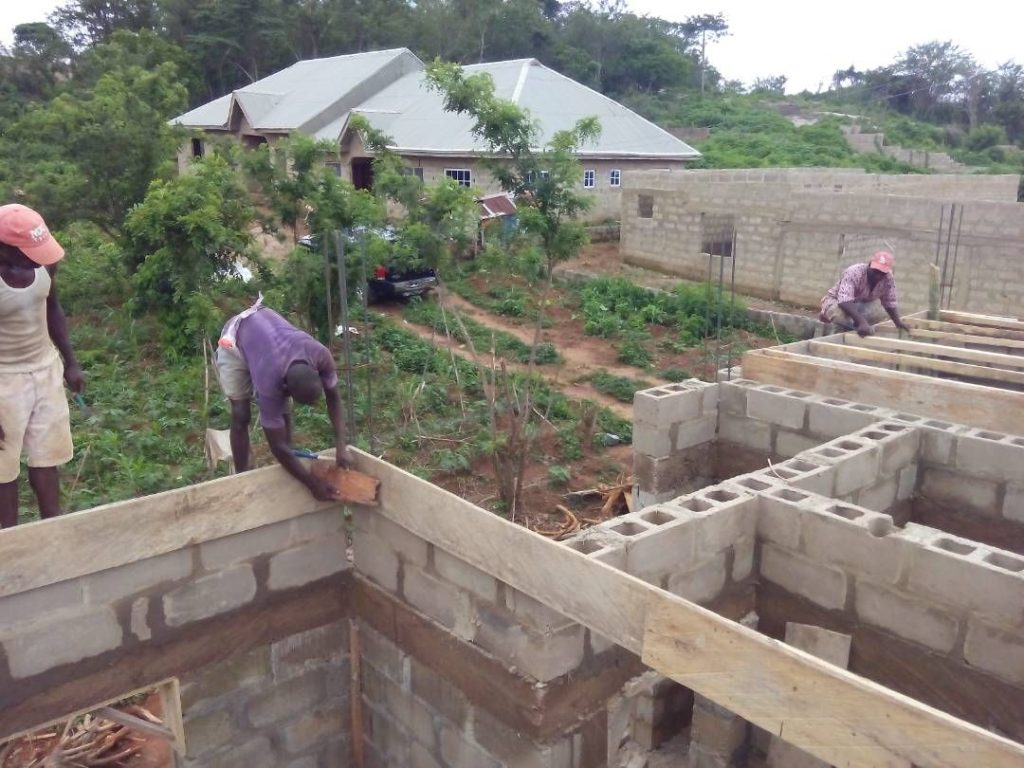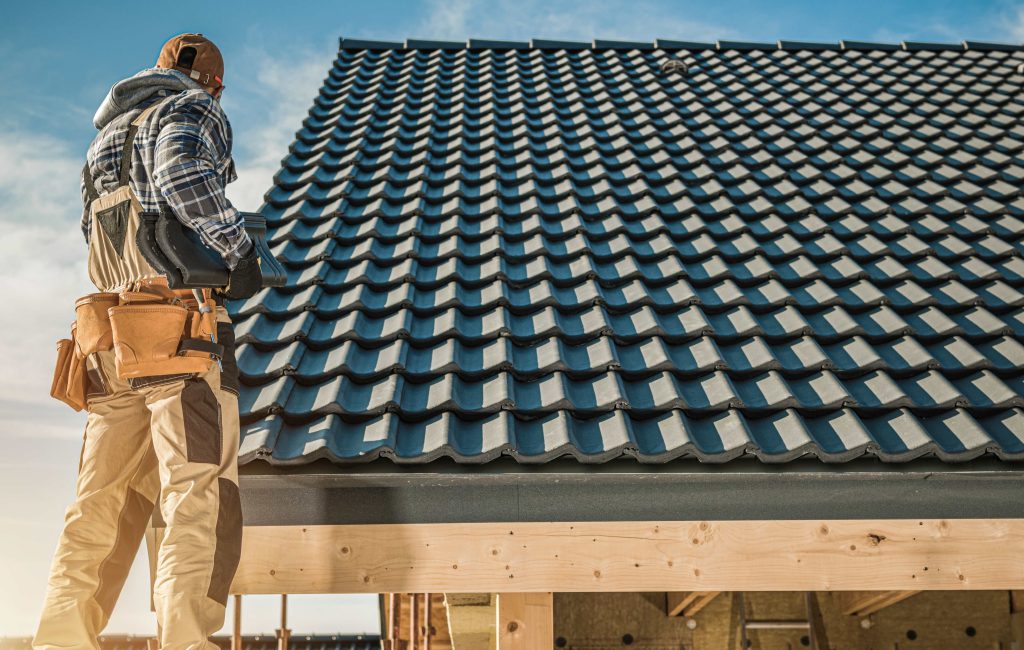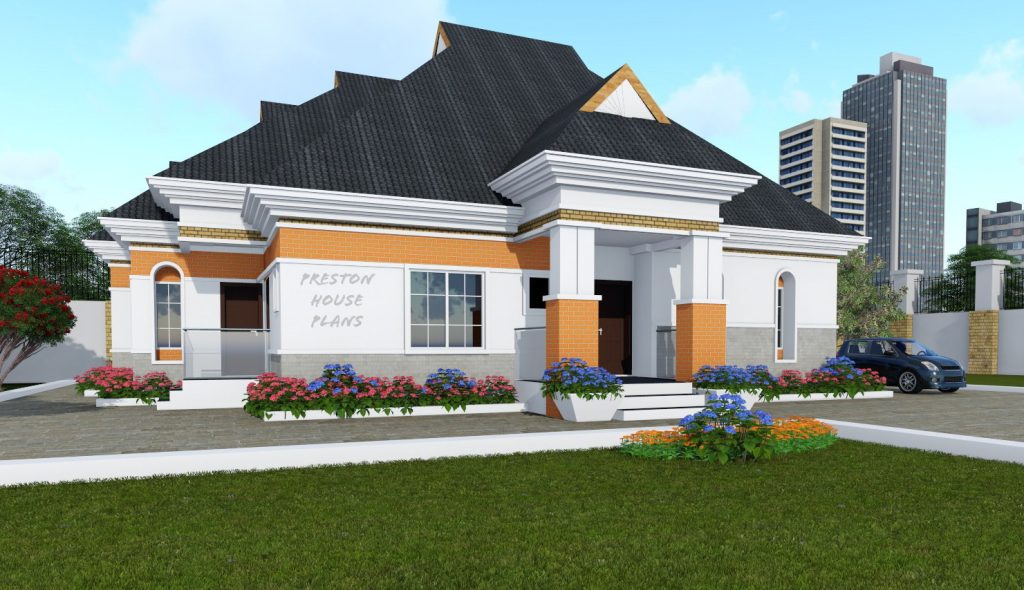Are you considering building a 3-bedroom bungalow in Nigeria? As a homeowner or investor, understanding the full cost breakdown is crucial for budgeting, planning, and ultimately bringing your dream home to life. However, with fluctuating material prices and ever-evolving labor costs, getting accurate, up-to-date estimates can be challenging. In this guide, we’ll walk you through the critical stages of construction, covering everything from foundation to roofing.
Expect a detailed breakdown of current prices, labor requirements, and smart tips to manage your budget effectively. Whether you’re a first-time builder or an experienced property developer, this article is designed to equip you with valuable insights to make well-informed decisions.
Many people are curious about the real cost of building a 3-bedroom bungalow in Nigeria. Here, we’ll break down the full costs based on the current prices of building materials, the stages involved, and factors that may impact your budget.
Key Factors That Influence Building Costs
Before we get into numbers, it’s essential to note a few key factors that will influence the cost of your bungalow:
- Design Complexity: Simple designs are less costly than intricate or unusual designs.
- Total Floor Area: Larger floor areas will require more materials and labor.
- Soil Quality: If the soil lacks a solid foundation, additional work may be required, increasing costs.
With these factors in mind, let’s start with the foundational requirements.
Stage 1: From Foundation to DPC (German Floor Level)

What is DPC?
The DPC, or Damp Proof Course, is a barrier layer that prevents moisture from entering your walls from the ground. It’s essentially the base level for your home’s structure, sometimes called the German Floor, which ensures a solid and moisture-free start to the building.
Materials Needed
For the foundation stage, you’ll need:
Materials Required
- Sharp Sand: 4 trips at ₦40,000 per trip = ₦160,000
- Cement: 100 bags at ₦7,400 per bag = ₦740,000
- Granite/Chippings: 20 tons at ₦35,000 per ton = ₦700,000
- Blocks: 1,000 blocks at ₦400 per block = ₦400,000
- 12mm Rods: 4 lengths at ₦9,000 per length = ₦36,000
- 6mm Rods: 3 lengths at ₦800 per length = ₦2,400
- 1×12 Wood: 20 pieces at ₦2,600 per piece = ₦52,000
- 2×2 Wood: 10 lengths at ₦500 per length = ₦5,000
- Binding Wire: 10kg at ₦18,500 = ₦18,500
- Nails (3 inches): Half a bag at ₦16,000 = ₦16,000
- Laterite for Earth Filling: 10 trips at ₦35,000 per trip = ₦350,000
Total Material Cost: Approximately ₦2,479,900
Labor Cost: ₦400,000
Subtotal for Foundation to DPC: ₦2,879,900
Stage 2: Raising the Building from Floor Level to Roof Level
Now that the DPC is set, the next step involves raising the house from the ground floor to the roof level. This stage includes building up the walls, adding window spaces, and installing the lintel (a horizontal beam above doors and windows for structural support).
Materials Required
- Sharp Sand: 5 trips at ₦40,000 per trip = ₦200,000
- Cement: 80 bags at ₦7,400 per bag = ₦592,000
- Chippings/Granite: 15 tons at ₦35,000 per ton = ₦525,000
- Blocks: 2,200 blocks at ₦400 per block = ₦880,000
- 10mm Rods: 60 lengths at ₦8,200 per length = ₦492,000
- 1×12 Wood: 60 pieces at ₦2,600 per piece = ₦156,000
- 2×2 Wood: 30 lengths at ₦500 per length = ₦15,000
- Binding Wire: 20kg at ₦37,000 = ₦37,000
- Nails (2-inch and 3-inch): Half bags at ₦36,000 and ₦32,000 respectively
Total Material Cost: Approximately ₦2,965,000
Labor Cost: ₦600,000
Subtotal for DPC to Roof Level: ₦3,565,000
Stage 3: Adding the Concrete Fascia (optional)

The fascia is that concrete edge around the roof level of the house. It’s optional but popular for modern homes in Nigeria, adding both style and weather protection.
Materials Required
- 10mm Rods: 40 lengths at ₦8,200 = ₦328,000
- 8mm Rods: 40 lengths at ₦3,300 = ₦132,000
- Gravel: 20 tons at ₦150,000 per ton = ₦300,000
- Cement: 40 bags at ₦7,400 = ₦296,000
- Sharp Sand: 2 trips at ₦40,000 = ₦80,000
Total Material Cost: Approximately ₦986,000
Labor Cost: ₦200,000
Subtotal for Concrete Fascia: ₦1,186,000
Stage 4: Roofing Structure

The final stage involves constructing the roofing frame. This is the skeletal woodwork that will hold the roofing sheets. (Note that the roofing sheets themselves are usually an additional cost, covered in a separate budgeting section.)
Materials Required
- 2x4x16 Wood: 200 pieces at ₦1,800 = ₦360,000
- 2x3x12 Hardwood: 160 pieces at ₦700 = ₦112,000
- 2x3x12 Softwood: 180 pieces at ₦500 = ₦90,000
- Nails (3 and 4 inches): One bag each at ₦32,000 and ₦20,000 respectively
Total Material Cost: Approximately ₦614,000
Labor Cost: ₦150,000
Subtotal for Roof Structure: ₦764,000
Optimized SEO Title:
“The Complete Cost Breakdown for Building a 3-Bedroom Bungalow in Nigeria (2024)
Building a three-bedroom bungalow in Nigeria can be both exciting and daunting. With rising material costs and varying labor charges, knowing the full cost breakdown upfront is invaluable for anyone budgeting or planning for this project. Here, we’ll dive into each building stage, discuss associated costs, and explore factors that may influence your expenses. Let’s explore a practical cost estimate for each phase of construction, helping you make informed decisions and avoid unexpected expenses.
Key Factors That Influence Building Costs
Before we get into numbers, it’s essential to note a few key factors that will influence the cost of your bungalow:
- Design Complexity: Simple designs are less costly than intricate or unusual designs.
- Total Floor Area: Larger floor areas will require more materials and labor.
- Soil Quality: If the soil lacks a solid foundation, additional work may be required, increasing costs.
With these factors in mind, let’s start with the foundational requirements.
1. Foundation to DPC Level
For a sturdy foundation that supports your 3-bedroom bungalow, here’s what you’ll need and the current pricing (based on market averages).
Materials Required
- Sharp Sand: 4 trips at ₦40,000 per trip = ₦160,000
- Cement: 100 bags at ₦7,400 per bag = ₦740,000
- Granite/Chippings: 20 tons at ₦35,000 per ton = ₦700,000
- Blocks: 1,000 blocks at ₦400 per block = ₦400,000
- 12mm Rods: 4 lengths at ₦9,000 per length = ₦36,000
- 6mm Rods: 3 lengths at ₦800 per length = ₦2,400
- 1×12 Wood: 20 pieces at ₦2,600 per piece = ₦52,000
- 2×2 Wood: 10 lengths at ₦500 per length = ₦5,000
- Binding Wire: 10kg at ₦18,500 = ₦18,500
- Nails (3 inches): Half a bag at ₦16,000 = ₦16,000
- Laterite for Earth Filling: 10 trips at ₦35,000 per trip = ₦350,000
Total Material Cost: Approximately ₦2,479,900
Labor Cost: ₦400,000
Subtotal for Foundation to DPC: ₦2,879,900
2. DPC to Roof Level
Next, let’s cover the essential materials for construction from the ground floor to the roof.
Materials Required
- Sharp Sand: 5 trips at ₦40,000 per trip = ₦200,000
- Cement: 80 bags at ₦7,400 per bag = ₦592,000
- Chippings/Granite: 15 tons at ₦35,000 per ton = ₦525,000
- Blocks: 2,200 blocks at ₦400 per block = ₦880,000
- 10mm Rods: 60 lengths at ₦8,200 per length = ₦492,000
- 1×12 Wood: 60 pieces at ₦2,600 per piece = ₦156,000
- 2×2 Wood: 30 lengths at ₦500 per length = ₦15,000
- Binding Wire: 20kg at ₦37,000 = ₦37,000
- Nails (2-inch and 3-inch): Half bags at ₦36,000 and ₦32,000 respectively
Total Material Cost: Approximately ₦2,965,000
Labor Cost: ₦600,000
Subtotal for DPC to Roof Level: ₦3,565,000
3. Concrete Fascia (Optional)
If your design includes a concrete fascia, here’s what to budget:
Materials Required
- 10mm Rods: 40 lengths at ₦8,200 = ₦328,000
- 8mm Rods: 40 lengths at ₦3,300 = ₦132,000
- Gravel: 20 tons at ₦150,000 per ton = ₦300,000
- Cement: 40 bags at ₦7,400 = ₦296,000
- Sharp Sand: 2 trips at ₦40,000 = ₦80,000
Total Material Cost: Approximately ₦986,000
Labor Cost: ₦200,000
Subtotal for Concrete Fascia: ₦1,186,000
4. Roof Structure
For a solid roofing framework, here’s what’s needed:
Materials Required
- 2x4x16 Wood: 200 pieces at ₦1,800 = ₦360,000
- 2x3x12 Hardwood: 160 pieces at ₦700 = ₦112,000
- 2x3x12 Softwood: 180 pieces at ₦500 = ₦90,000
- Nails (3 and 4 inches): One bag each at ₦32,000 and ₦20,000 respectively
Total Material Cost: Approximately ₦614,000
Labor Cost: ₦150,000
Subtotal for Roof Structure: ₦764,000
Summary and Final Cost Estimate
Here’s a quick summary of all costs from the foundational stage to roofing:
| Stage | Material Cost (₦) | Labor Cost (₦) | Total (₦) |
|---|---|---|---|
| Foundation to DPC | 2,479,900 | 400,000 | 2,879,900 |
| DPC to Roof Level | 2,965,000 | 600,000 | 3,565,000 |
| Concrete Fascia (Optional) | 986,000 | 200,000 | 1,186,000 |
| Roof Structure | 614,000 | 150,000 | 764,000 |
| Grand Total | 7,044,900 | 1,350,000 | 8,394,900 |
Note: This cost breakdown excludes expenses such as contractor fees, and the cost of roofing sheets or final finishes. Adjustments may be necessary based on specific project demands, design complexity, and fluctuating market prices.
Tips for Budgeting and Saving on Costs
- Location Matters: The cost of materials and labor may vary based on where you’re building.
- Choose Simpler Designs: Complex house designs can increase both material and labor costs.
- Consider Soil Type: If your soil is weak, expect higher foundation costs. Solid ground cuts down on foundation expenses.
- Alternative Fascia Options: Opt for wooden fascia boards instead of concrete fascia if you’re looking to save a little more.
Conclusion
Building a 3-bedroom bungalow in Nigeria comes with several stages and associated costs, but with the right planning, you can create a comfortable and stylish home within your budget. For a closer look at building stages or cost-saving techniques, check out our other articles and guides.
Ready to start building? Make sure to keep up with our blog for the latest in construction advice, material price updates, and building tips in Nigeria!





GOOD JOB